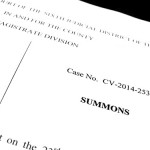Almost two years ago now, Medicaid/Medicare liens became even more difficult to deal with as the law pushed to the lawyers and insurance companies the obligation of confirmation and resolution of Medicare/Medicaid liens. I’m sure betting an insurance company has yet to receive a fine for not verifying a lien before paying a personal injury settlement. But nobody wants to be the first.
Medicare, Medicaid and State Children’s Health Insurance Program Extension Act of 2007 created so many headaches people starting fighting back. In Haro v. Sebelius, an Arizona case in U.S. District Court, Medicare beneficiaries (and, interestingly, a personal injury lawyer in his own capacity) challenged – as a class – two things: (1) Can Medicare/Medicaid (hereinafter “Medicare because I’m sick of the slash) “require prepayment of a reimbursement claim before the correct amount is administratively determined where the beneficiary either appeals or seeks a waiver of the MSP reimbursement claim?, and (2) Are personal injury lawyers financially responsible for reimbursement if they do not hold or immediately turn over to Medicare their clients’ personal injury settlement awards.
Personal injury lawyers are completely in a pickle on these liens. Our clients want their money; we want to get them the money they are entitled to get. The question is whether personal injury attorneys are precluded from giving the clients their settlement money until after Medicare’s claim has been satisfied, and, let’s be honest, whether Medicare can recover the reimbursement claim directly from the attorney if the client cannot pay the reimbursement claim after the settlement money has been turned over to the client.
Continue reading

 Maryland Injury Law Center
Maryland Injury Law Center







